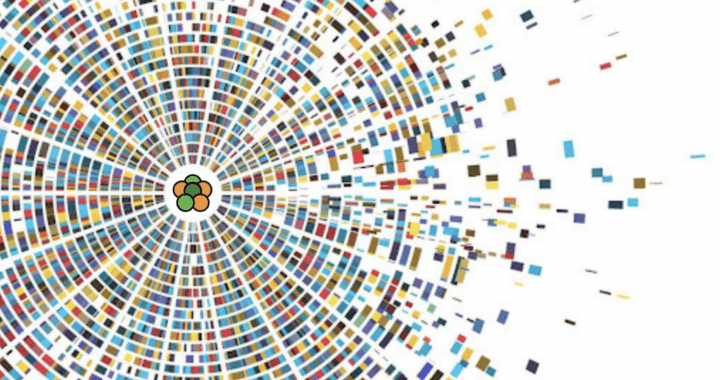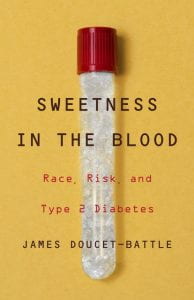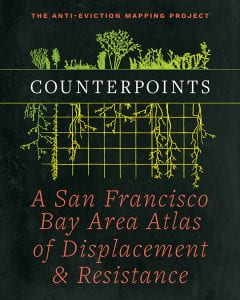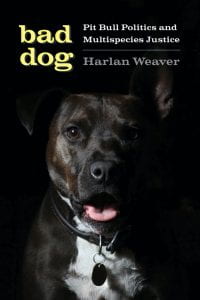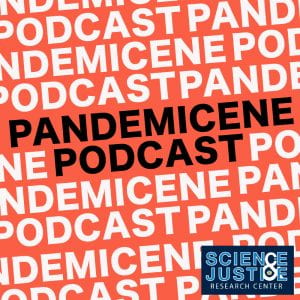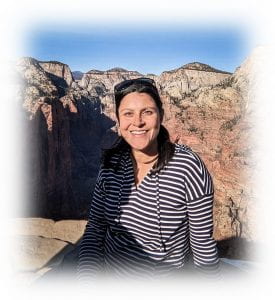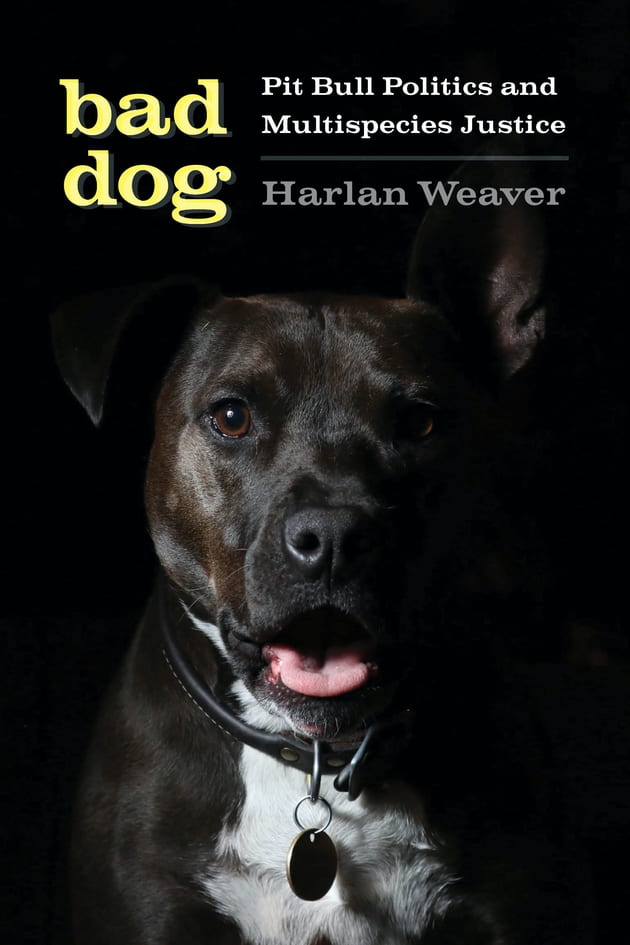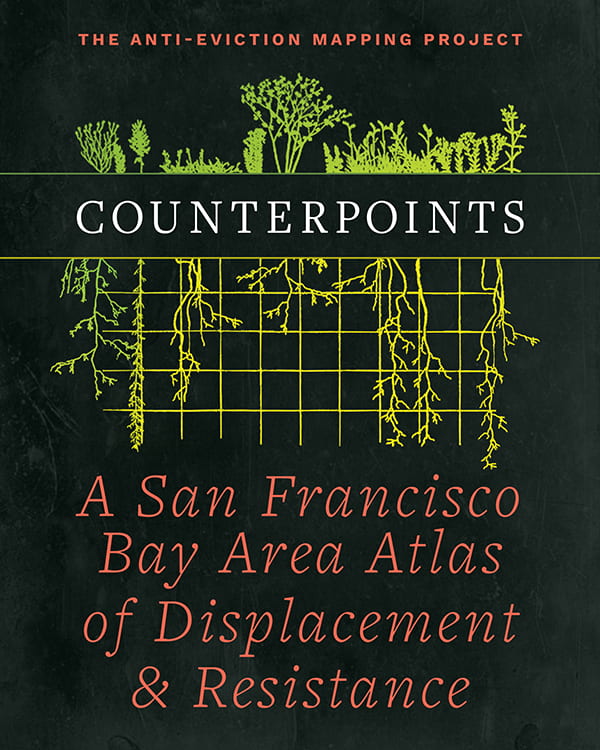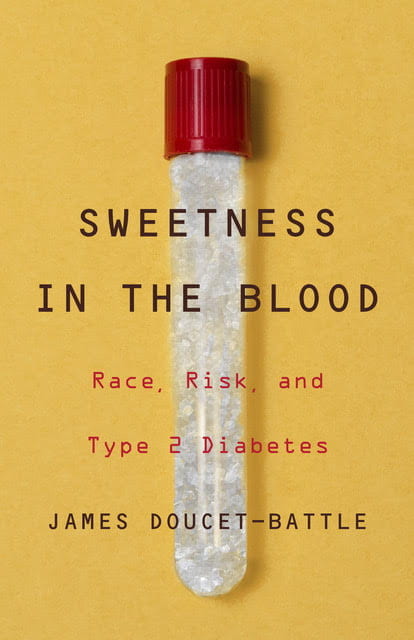Volume 14
Director’s Letter: Welcome to Science & Justice
As we look forward to the year to come, we appreciate the chance to share with you our accomplishments of the last year.
Science & Justice continues to be in the headlines, making a critical difference in California, the nation and globally. Our faculty and students were out front both in the press, and in their many new publications and interviews, addressing pressing issues, including public trust in science and medicine, bias and algorithms, and access to COVID-19 vaccines. Inspired by the original research conducted by our Pandemicene students, our researchers contributed to The Empty Year: An Oral History of the Pandemic(s) of 2020 at UC Santa Cruz, a 540-page book produced under the guidance of the University Library’s Regional History Project that preserves stories of resilience and loss. Members of our Theorizing Race After Race working group published critical dialogues about COVID, Race and Racism in The Foundry. And work by our faculty on justice issues raised by the pandemic appeared in Vice and Social Science Research Council’s journal, Items.
In the midst of the pandemic and the Black Lives Matter movement, our undergraduates expressed an increased demand for more curricular offerings at the intersections of science and justice. Science & Justice affiliated faculty across the divisions also expressed interest in working together on questions of intersectional justice. These interests converged this year in the proposal for a Science and Justice Minor to be housed in the newly established Critical Race and Ethnic Studies department. Our faculty also continued to advise undergraduate researchers who produced podcasts on COVID-19 and social justice that aired on KZSC, and who transformed their research with Science & Justice into senior theses.
Our events continued to highlight the unusual and inspiring collaborations and conversation Science & Justice creates. Participants engaged with us from all over the nation and world, including over the last year remotely from Canada, Denmark and universities throughout the United States.
This year Science & Justice continued its history of initiating bold new collaborations. In particular, we worked with Alondra Nelson and the Institute of Advanced Study to propose a new domain of research, the Sociology of Bioethics. The Wellcome Trust chose the proposal–which sought to place questions of justice at the core of bioethics–as a finalist for its Research Development Award in the Humanities and Social Sciences. We were encouraged by this recognition, and will continue to seek funding. However, plans are on hold as we are pleased to report that Nelson the Biden/Harris administration appointed Nelson Deputy Director for Science and Society in the Office of Science and Technology Policy (OSTP). Dr. Nelson will be the first person to fill this role, bringing social science expertise to national science and technology policy.
Despite the ongoing pandemic, the 2020-21 academic year also produced much to celebrate. Congratulations to Sociology graduate student and Science & Justice Graduate Researcher Andy Murray, who was awarded a postdoctoral fellowship at the Harvard Kennedy School of Government to work on the project, “The Global Observatory for Gene Editing: Toward a Cosmopolitan Ethics for Biotechnology and the Human Future.” Congratulations also go to Film & Digital Media graduate student and graduate of the SJRC training program Dorothy R. Santos, who was named an honoree by San Francisco’s Yerba Buena Center for the Arts as one of their YBCA 100 for 2020!
We are ever thankful for the guidance and support our steering committee and board of advisors continue to provide us, and for the support of many units and divisions on campus.
Jenny Reardon, Founding Director of the Science & Justice Research Center, Professor of Sociology, UC Santa Cruz
James Doucet-Battle, Fall 2020 Interim Director of the Science & Justice Research Center, Assistant Professor of Sociology, UC Santa Cruz
Science & Justice Leadership Team
Founding DIRECTOR and DIRECTOR of Teaching the SJTP | Jenny Reardon, Professor of Sociology
Fall 2020 Interim Director of the SJRC | James Doucet-Battle, Assistant Professor of Sociology
CENTER MANAGER | Colleen Stone
GRADUATE STUDENT RESEARCHER | Dennis Browe, Sociology
Science & Justice Steering Committee
Jennifer Derr, Associate Professor of History
James Doucet-Battle, Assistant Professor of Sociology
Lise Getoor, Professor of Computer Science
Jaimie Morse, Assistant Professor of Sociology
Jenny Reardon, Professor of Sociology
Matt Sparke, Professor of Politics
The Science & Justice Mission
The Science & Justice Research Center at the University of California, Santa Cruz is a globally unique endeavor that innovates experimental spaces, engages in collaborative research practices, and fosters emerging alliances between seemingly disparate sectors, disciplines and communities. Biomedical innovation, species extinction, toxic ecologies, healthcare reform, and many other contemporary matters of concern provoke questions that traverse multiple intellectual, institutional and ethico-political worlds. Science & Justice generates modes of inquiry and empirically rigorous research that address these enormous challenges and support livable worlds. The Center is home to the Science and Justice Working Group, graduate training programs and sponsored research projects. The initiative builds on the UCSC campus’ historic commitments to socio-ecological justice and strengths in science studies and interdisciplinary research.
Sustaining a Vibrant SJRC Community
The Science & Justice Research Center is the home of a vibrant, collaborative community. Located in Oakes College, SJRC hosts visitors from across the UC system and around the world. The space in which we gather is the unceded land and territory of the Awaswas-speaking Uypi Tribe – as well as – the online platform Zoom. The SJRC community is committed to sustaining an experimental ecosystem for novel ideas, dialogues, methods and collaborations. The Science & Justice Working Group remains the heart of our collective work. We also host regular reading groups and experimental mixers with affiliated graduate students and faculty who seek to further investigate the meanings and practices of science and justice.
Visiting Scholar Program
Since 2009, the SJRC Visiting Scholars Program has been a vibrant hub for interdisciplinary scholars across the UC-system, the nation and the globe. The Science & Justice Research Center offers opportunities for visiting scholars at all levels of their career (regardless of institutional affiliation) to participate in the community through research collaborations, reading groups and experimental mixers. In the 2020-2021 academic year, the Center continued to host one long-term visiting scholar and conceptualized remote exchanges for the coming academic year: refer to Appendix 1 to learn more about our visitors.
Highlights from the Science & Justice Working Group, Experimental Mixers, Writing and Reading Groups
The Science & Justice Working Group (SJWG) provides a convivial and novel space to cultivate emerging connections, spark new questions for research, and nurture our communities’ collaborative ties. In addition to formally convening the SJWG, our informal experimental mixers are a lively and open space for all SJRC community members.
Below are some highlights of the year’s events (all events are listed in Appendix 2).
On October 14, the Center began the 2020-2021 academic year by hosting our annual Meet & Greet. In addition to a chance to celebrate the new academic year and enjoy each other’s company, the annual gathering is always a great chance to welcome new members, welcome back others, and share current work to foster emerging collaborations.
Professor of Social Sciences Julie Guthman, Assistant Professor of Environmental Studies Madeleine Fairbairn and Assistant Professor of Environment and Sustainability at the University at Buffalo (SUNY), Emily Reisman kicked off the Works-in-Progress Series on October 28 by presenting their research on the emerging Silicon Valley-based agri-food tech sector and its aspirations to address the major challenges of food systems. More information can be found at: https://afterproject.sites.ucsc.edu/. A rapporteur report by SJRC Graduate Student Researcher, Dennis Browe can be found at: https://scijust.ucsc.edu/2020/10/28/oct-28-works-guthman-fairbairn-reisman/.
Our Works-in-Progress series continued on February 24 with Science & Justice affiliate, postdoctoral scholar, and incoming Assistant Professor of Earth & Planetary Sciences Tamara Pico who discussed her interests in understanding how practices in 19th century early U.S. geology continue to shape the culture and values in geoscience today. A rapporteur report by SJRC Graduate Student Researcher Dennis Browe can be found at: https://scijust.ucsc.edu/2021/02/24/feb24-works-pico/.
In Winter and Spring, SJRC organized and co-hosted a University Forum and two book launch events with the University Relations Special Events Office.
On March 9, the University Forum “V is For Veracity” featured SJRC Founding Director and Professor of Sociology Jenny Reardon with introductions and Q&A moderated by Assistant Professor of Sociology James Doucet-Battle. Learn more in the April 2020 UCSC campus news article, “Discrimination, governance, and trust in the age of COVID-19“ and the May 2020 Social Science Research Council Items article, “V is for Veracity“. A recording of the forum is available on YouTube.
“Jenny Reardon, in her contribution to the “Covid-19 and the Social Sciences” series, argues that the metaphors of war and battle in fighting Covid-19, now commonplace, can have their own problematic effects on how we imagine and act in the face of the pandemic. The “us vs. them” imagery that war metaphors promote pulls us away from veracity — “trustworthy truths” that foreground human (and nonhuman) relations and interdependencies. The pandemic provides an opportunity, Reardon argues, to mobilize veracity for a more just post–Covid-19 future.” -Items, June 4, 2020
On April 7, we celebrated the launch of Assistant Professor of Sociology James Doucet-Battle’s new book Sweetness in the Blood: Race, Risk, and Type 2 Diabetes (U. Minn Press, 2021) that challenges assumptions about race within diabetes research and delves into the issue through the lens of African American experiences. With opening remarks and general welcome by SJRC Founding Director and Professor of Sociology Jenny Reardon and introductions and moderation by Nancy Chen (Professor of Anthropology, Associate Dean for Health, Wellbeing and Society), we gathered in the spirit of celebrating Sweetness in the Blood’s launch and broadening the discussion of race and risk. The conversation with Edward T. Hawthorne, founder and managing partner of CE3 Solutions, LLC, was recorded and is available on YouTube.
On May 4, we celebrated the launch of the Anti-Eviction Mapping Project’s Counterpoints: A San Francisco Bay Area Atlas of Displacement & Resistance (PM Press, 2021) that brought together cartography, essays, illustrations, and poetry to depict gentrification and resistance struggles from across the San Francisco Bay Area and act as a roadmap to counter-hegemonic knowledge making and activism. The event, moderated by Chris Benner (Director of the UC Santa Cruz Institute for Social Transformation), featured original research from multiple campus contributors including an overview by Erin McElroy (UCSC Feminist Studies alum, New York University’s AI Now Institute postdoctoral researcher) with co-editor Adrienne Hall (PhD student in Geography at the University of North Carolina at Chapel Hill, the UCSC No Place Like Home initiative and SJRC’s Just Biomedicine research cluster. SJRC affiliate Katherine Weatherford Darling (University of Maine), who co-led the SJRC contribution titled: ‘Just Biomedicine on Third Street? Health and Wealth Inequities in San Francisco’s Biotech Hub,’ examined the different visions for health and healthcare that have been imagined and practiced along the Third Street corridor. A recording can be found on YouTube.
Our Works-in-Progress series concluded on May 12 with new Science & Justice affiliate, Assistant Professor of History Kathleen Cruz Gutierrez who discussed the cultural and intellectual history of the sampaguita, a species of jasmine presently known as the national flower of the Philippines, and its gendered (and gendering) ties to the nationalist imagination. A rapporteur report by SJRC Graduate Student Researcher Dennis Browe can be found at: https://scijust.ucsc.edu/2021/05/12/works-kat/.
On May 26, SJRC scholars joined in the final celebration of the year with UCSC alum and assistant professor of gender, women, and sexuality studies at Kansas State University, Harlan Weaver’s book launch of Bad Dog: Pit Bull Politics and Multispecies Justice (University of Washington Press, 2021). Bad Dog examines pit bulls and animal shelter politics through the lens of what Weaver terms “interspecies intersectionality” in order to identify how relationships between humans and non-human animals shape and are shaped by experiences of gender, race, colonialism, nation, and sexuality. Traversing themes ranging from contemporary claims to “rescue,” the history of the human, the ontological emergences/becomings of human/pit bull relationships, and the queer possibilities for challenging normative kinship inherent in pit bull politics, Bad Dog provides a compelling interdisciplinary argument for a justice that engages the needs, desires, and imaginings of marginalized humans and non-human animals together. A recording of the presentation is available here.
Justice Sparks Innovative and Original Research
The Science & Justice Research Center continues to be an exemplar of how to transform commitments to justice into collaborative research projects. We formulate new methods and institutional practices where scientists and engineers work alongside social scientists, humanists, ethicists, artists and diverse public communities. SJRC affiliates pursue local, regional, national, and international research collaborations on issues that inform and affect institutional and public policy.
The Pandemicene: Re-Worlding Towards Justice
As we all continued responding to and reorienting activities to nurture our community during the global COVID-19 pandemic, SJRC continued The Pandemicene: Re-worlding Towards Justice project. The project launched in Spring 2020 as a part of Director Jenny Reardon’s group tutorial and undergraduate independent study seminar SOCY 194: Living and Learning in a Pandemic: The Sociology of COVID-19 (for a description of the class and the project refer to the April 2020 campus news article, “Discrimination, governance, and trust in the age of COVID-19”; for thinking that informed the effort, see the May 2020 Social Science Research Council Items article, “V is for Veracity“, written by SJRC Founding Director Jenny Reardon).
Amid the crisis, our particular commitment at Science & Justice remained to help build spaces where our partners and friends from around the planet could think and re-world together. Over Summer 2020, undergraduate students who took The Pandemicene class– Kathia Damian (Literature), Gina Barba (Community Studies), Isa Ansari (Sociology), Maryam Nazir (Philosophy)–along with graduate students Dennis Browe (Sociology), Paloma Medina (Biomolecular Engineering), and Dorothy Santos (Film & Digital Media) under the guidance of SJRC Director Jenny Reardon, designed and recorded a podcast series with critical conversations among our collaborators here and around the world about how their foci had and had not changed during the pandemic, and how– practically–to re-world towards justice at this critical historical juncture.
In Fall, as the Talk and News Director of KZSC Santa Cruz 88.1 FM, undergraduate Kathia Damian guided the sound editing process, Isa Ansari provided the voice for the podcast episodes and series, and Maryam Nazir created publicity and social media content. With the crucial work of students, 9 episodes were produced and aired on KZSC 88.1FM and Spotify over Fall term and 4 episodes were released on the project site in Winter. A full list of episodes can be found in Appendix 3.
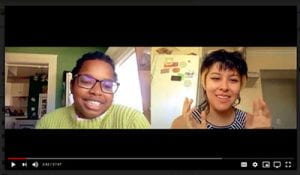
Aitanna Parker, left (Stevenson, technology and information management and critical race and ethnic studies, ’20) and Kathia Damia (College 10, literature, ’21) interviewing each other on Zoom for The Empty Year project.
Approached by the UC Santa Cruz University Library, Science & Justice graduate researchers Dennis Browe (Sociology) and undergraduate researchers Kathia Damian (Literature, pictured left in white and black stripes), Maryam Nazir (Philosophy) and Aitanna Parker (Technology and Information Management and Critical Race and Ethnic Studies, pictured left in green) contributed to The Empty Year: An Oral History of the Pandemic(s) of 2020 at UC Santa Cruz, an immersive project showing how community members coped in the time of COVID-19. The Empty Year collects the oral histories of UC Santa Cruz undergraduate and graduate students last year under the guidance of the University Library’s Regional History Project. These stories of resilience and loss are preserved in a 540-page published book with full-color images as well as an online electronic version with SJRC students and the Science and Justice project mentioned on page 8. Learn more in this campus news article: Bearing witness to COVID at UC Santa Cruz.
“Documenting this moment in time is important, as COVID-19 may be the defining struggle of this generation. Storytelling is especially crucial during this pandemic since the number of deaths and cases ticked on screen don’t feel real. Oral history provides a means to understand the information we have been bombarded with.”
– Kathia Damian (UCSC Literature ‘21)
Towards A Sociology of Bioethics
In January 2021, SJRC Founding Director Jenny Reardon in collaboration with Alondra Nelson at the Princeton Institute of Advanced Study submitted a proposal for a Wellcome Trust Research Development Award in Humanities, Social Science and Bioethics with a proposal entitled, “Toward a Sociology of Bioethics.” The proposal was selected as one of 16 finalists from a pool of 112 applicants asked to submit a final application for the million pound grant scheme aiming to create a new field of bioethics that places social sciences at its heart and justice as its core principle. While the award was not granted, the team was encouraged by the positive feedback from Wellcome, and will continue to look for applicable funding to push the research agenda forward.
In that same month, Nelson was appointed Deputy Director for Science and Society of the Office of Science and Technology Policy (OSTP) by the Biden/Harris administration. Alondra Nelson is the first person to fill this Science and Society role, which brings social science expertise to national science and technology policy. Nodding Towards a Sociology of Bioethics, Nelson made clear in her acceptance speech that she will make inclusion, equity and justice core guiding principles at the OSTP. As she eloquently explained:
“I believe we have a responsibility to work together to make sure that our science and technology reflects us, and when it does that it reflects all of us, that it reflects who we truly are together. This too is a breakthrough. This too is an innovation that advances our lives. We have an incredible opportunity ahead of us to approach our science and technology policy in ways that are honest and inclusive, to bring the full strength of our communities—our experiences, our concerns and our aspirations—to every table as we think through emergent forms of science and technology. There has never been a more important moment for scientific development—to get scientific development right or to situate that development in our values of equality, accountability, justice, and trustworthiness.”
– Alondra Nelson, January 16, 2021
We are thrilled by Dr. Nelson’s appointment and appreciate the values of social justice and the insights of social science guiding science and technology policy on the national stage.
Reference Links:
- https://www.ias.edu/news/2021/nelson-ostp-appointment
- Watch her announcement speech on CSPAN. Dr. Nelson takes the podium at 21:30.
- https://www.nature.com/articles/d41586-021-00159-z
- https://www.nytimes.com/2021/03/29/climate/biden-trump-science.html
- https://www.whitehouse.gov/briefing-room/statements-releases/2021/06/25/fact-sheet-president-biden-signs-executive-order-advancing-diversity-equity-inclusion-and-accessibility-in-the-federal-government
Syndemics and Structural Racism
In March 2021, the Science & Justice Research Center in collaboration with the Health Improvement Partnership of Santa Cruz County (HIP) applied for a Robert Wood Johnson Foundation grant with a proposal entitled, “Syndemics and Structural Racism: COVID-19, Type 2 Diabetes, and Climate Change.” The effort was led by co-PIs Assistant Professor of Sociology James Doucet-Battle and Nancy Chen (Professor of Anthropology, Associate Dean for Health, Wellbeing and Society) with HIP’s Population Health Director Maritza Lara. While the award was not granted, we continue looking for applicable funding and ways to strengthen campus partnerships to build systems of care with HIP. The HIP supports many councils and organizations (eg: Safety Net Clinic Coalition, United Way) that work to improve health outcomes for Santa Cruz County residents who receive care through publicly-funded programs – as well as the City of Santa Cruz’s Sustainability + Climate Action Manager and Science & Justice Training Program alumni Tiffany Wise-West who leads the community-driven Climate Action Plan 2030 process and the city’s Health in All Policies (HiAP) policy.
Center for Open Access Splicing Therapeutics (C.O.A.S.T.)
In Winter and Spring 2021 Science & Justice (Jenny Reardon, Andy Murray, and Colleen Stone) worked with Jeremy Sanford (MCD Biology) and Michael Stone (Chemistry) on a new research project as part of an effort to create The UCSC Center for Orphan-disease Alternative Splicing Therapeutics (C.O.A.S.T.). The group was awarded $75,000 of seed funding from the Office of Research and PBSci Dean Koch. The goals of C.O.A.S.T. is to accelerate the discovery of precision therapies for rare diseases by exploiting the chemical language of ribonucleic acid (RNA), while addressing the questions of ethics and justice raised by this novel area of research. SJRC recruited 3 undergraduate students (from the fields of biochemistry/ molecular biology, sociology/statistics, and biomolecular engineering) to independently research items related to pharmaceutical licensing agreements, bringing drugs to the market, ethical and equity issues related to orphan-disease drug discovery and dissemination.
Drawing on work with C.O.A.S.T. and lessons learned from COVID-19 Aisha Lakshman (Sociology, Statistics) released a blog post on “Normalizing Slow Science,” discussing the pace of scientific research. Lakshman will continue on the project next year while writing a senior thesis and plans on using her two disciplines to interpret datasets to demonstrate social problems and catalyze social change.
Incarcerated Care
The Incarcerated Care project brought together UCSC social scientists, film and digital media makers with local community groups to study and document health care needs and challenges of California state jails and prisons. Overseen by Film & Digital Media Professor Sharon Daniel who, with SJRC Founding Director Jenny Reardon and Psychology graduate student Roxy Davis, piloted a community initiated investigation into the conditions of health care in the Santa Cruz County jails. The 2019 preliminary study (funded by the UCSC Blum Center on Poverty, Social Enterprise and Participatory Governance) involved 14 semi-structured interviews with formerly incarcerated people and service providers in community health agencies. Aiming to amplify the voices of those incarcerated who face challenges receiving health care, the team looks forward to continuing the project as local pandemic guidelines allow.
Jail / Care Undergraduate researcher, now alum, Priyanka Kulkarni (Oakes, Sociology, ’20), who wrote a thesis on the project in Spring 2020 overseen by SJRC Interim Director and Assistant Professor of Sociology James Doucet-Battle, was hired by UCSF working on a research project involving system-impacted youth.
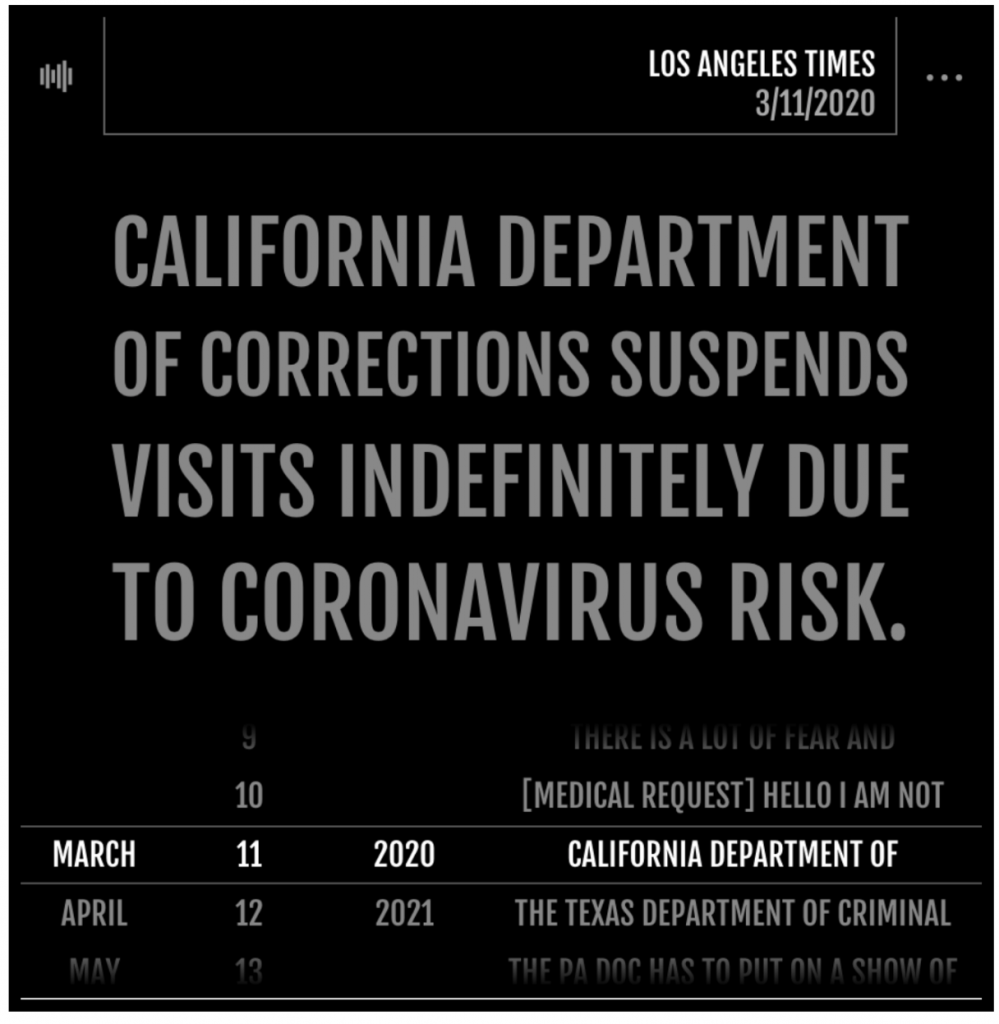 In the midst of the COVID-19 pandemic, the research expanded with the creation of EXPOSED (https://unjustlyexposed.com). Exposed documents the spread of COVID-19 over time inside prisons, jails, and detention centers across the United States, from the perspective of prisoners, detainees, and their families. In Winter and Spring, SJRC gathered 4 undergraduate researchers to contribute to the interactive documentary. Students came from many different fields– psychology, legal studies, feminist studies, cognitive science, politics and Critical Race and Ethnic Studies–to work on the project.
In the midst of the COVID-19 pandemic, the research expanded with the creation of EXPOSED (https://unjustlyexposed.com). Exposed documents the spread of COVID-19 over time inside prisons, jails, and detention centers across the United States, from the perspective of prisoners, detainees, and their families. In Winter and Spring, SJRC gathered 4 undergraduate researchers to contribute to the interactive documentary. Students came from many different fields– psychology, legal studies, feminist studies, cognitive science, politics and Critical Race and Ethnic Studies–to work on the project.
In May, lead undergraduate researcher Matt Sioson won funding from the Donald A. Strauss Public Service Scholarship Foundation to support his work as director of the Walls to Bridges Book Project. Sioson led a team of 15 student volunteers who sent books to system-impacted children on their birthdays on behalf of an incarcerated family member. In Summer, the SJRC issued fellowships to 3 undergraduates and 1 graduate researcher to continue contributing to the interactive documentary.
Theorizing Race After Race
Launched in 2018-2019 by SJRC Founding Director Jenny Reardon and SJRC affiliate and Assistant Professor of Sociology Camilla Hawthorne, the working group, Theorizing Race after Race (TRaR) continued seeking to develop a framework for grappling with reconfigurations of race after the supposedly ‘post-racial’ moment. Their goal is to understand how knowledge of the genome and ideas of human difference circulate, taking on different meanings across diverse historical-geographical contexts. The group convened several meetings throughout the academic year with campus scholars and developed a publication plan including a series of dialogues on COVID-19 and Racism.
On November 20th 2020, the first installment of the series posted on the UCHRI Foundry website as, Black Geographies of Quarantine: A Dialogue with Brandi Summers, Camilla Hawthorne, and Theresa Hice Fromille. Special thanks to Science & Justice researcher Aitanna Parker (recent graduate of Critical Race and Ethic Studies and Technology and Information Management) for helping with the interviewing of UCSC Sociology alum Brandi Summers (now Assistant Professor of Geography and Global Metropolitan Studies at UC Berkeley), faculty Camilla Hawthorne and graduate student Theresa Hice Fromille.
In February 2021, Science & Justice researcher Aitanna Parker also conducted research on COVID-related racial health disparities and prepared for a second dialogue on data, racial justice, and COVID-19 between UCSC Assistant Professor of Sociology Jaimie Morse and Alexis Madrigal, journalist at The Atlantic and co-founder of the COVID Racial Data Tracker to be posted to The Foundry’s blog in fall.
Over Summer 2021 Science & Justice graduate researchers Dennis Browe (sociology), Lucia Vitale (politics) undergraduate Sophia Parizadeh (politics), with the support of Science and Justice Director Jenny Reardon prepared to interview three scholars from different disciplinary backgrounds, and located in different geographical locations on how COVID has changed existing debates on race and racism in different transnational contexts. Those interviewed included Abril Saldaña-Tejada an anthropologist at the University of Guanajuato in Mexico who studies mestizaje and health patterns (including noncommunicable diseases), Pedro Valdez a sociologist at the Autonomous University of Santo Domingo in the Dominican Republic and a researcher at a national migration institute where he considers immigration, emigration, and healthcare access, and Felicity Amaya-Schaeffer professor of feminist studies at the University of California, Santa Cruz whose work considers border identities, citizenship and indigineity along the US/Mexico border.
These dialogues are part of an ongoing effort for SJRC researchers to develop frameworks for grappling with race and racism in this purportedly “post-racial” era. The COVID-19 pandemic provides particularly striking examples of the ways in which a post-racial moment has not yet come to pass, undermining a teleology already disrupted by the 2016 U.S. presidential election. While the pandemic is replaying old narratives in new guises, we contend that it also affords a real-time global critique of narratives of race and science. Dynamics of COVID-19, and narratives about it, differ across national, state, city, and zip code lines. Placing these differing narratives in conversation, we suggest, disrupts 20th- and 21st-century epistemes that have clung strongly to narratives of race and pathology, race and biology. To make these differences manifest, and to develop a critique that attunes us to the racial justice questions of this moment, in this forum TRAR is curating a series of dialogues between scholars working in different geographic and political contexts about different themes at the intersection of COVID-19 and racism—from the politics of numbers and race-based data collection, to questions of race, space, surveillance, and quarantine.
Funding Undergraduate and Graduate Research
SJRC assisted students in identifying and applying for campus funding to conduct original and collaborative research. Campus funding was awarded to undergraduate Science & Justice researchers through the Undergraduate Research in Science & Technology Endowment (Tee Wicks, Sociology), the Genomics Institute’s Research Mentoring Internship Program (Aisha Lakshman, Sociology; Ryleigh Hales, Biochemistry, MCD Biology; Jessica Singh, MCD Biology, Legal Studies), and the Institute for Social Transformation’s Building Belonging Program (Andrea Asher, Sociology, Human Biology; Tamar Sasson, Economics, Sociology).
Over the Summer of 2020 SJRC awarded 5 undergraduate students (totaling $3000.55) and 7 graduate students (totaling $19,000) funds to conduct original and collaborative research. Over the Summer of 2021 SJRC awarded 3 undergraduate students (totaling $ 2200) and 3 graduate students (totaling $10,000) funds to conduct original and collaborative research. The awards supported general living expenses, fieldwork or travel (as allowed by COVID-19 and shelter-in-place restrictions), presentation of work, and research.
For a complete list of the ongoing research our community conducted, refer to Appendix 3.
Creating a UCSC Ethics in Practice
At an increasing rate, many forms of scientific evidence are met not just with questions of curiosity and interest, but also with skepticism and mistrust. Healthcare systems are challenged by entrenched inequalities and profit motives. Algorithms encode bias into the heart of big data approaches to science and engineering. The next generation of leaders in biomedical and life sciences, environmental science, and engineering need to be adept at addressing these challenges. At SJRC, we believe this requires bold new approaches to ethics and research practice in STEM fields. We strive to exceed narrow standards for the ethical approval of science and prepare our students to be powerful stewards of socially robust and reflexive science. Our vision of good science exceeds simple compliance and strives towards institutional change. We work with affiliates to realize this in practice.
In Winter and Spring 2021 Science & Justice director Jenny Reardon (sociology), James Doucet-Battle (sociology), and manager Colleen Stone worked with affiliates Angela Brooks (Biomolecular Engineering) and Zia Isola (Director, UCSC Genomics Institute Office of Diversity) to address areas identified as priorities of the Genomics Institute’s Diversity Committee.
In Winter and Spring 2021 Science & Justice director Jenny Reardon (sociology), James Doucet-Battle (sociology), and manager Colleen Stone met bi-weekly with affiliates Angela Brooks (Biomolecular Engineering), Zia Isola (Director, UCSC Genomics Institute Office of Diversity), and Lars Fehren-Schmitz (anthropology) to re-conceptualize SJRC and Genomics Institute partnerships and to discuss the governing structures needed and support needed to create a functioning Genomics & Society program. They also discussed how to address diversity, equity, and inclusion issues within the culture of genomics and bioethics.
Leadership in the Ethical and Equitable Design of STEM research (LEED)
This partnership work seeded a new center initiative led by Science & Justice founding director Jenny Reardon called Leadership in the Ethical and Equitable Design of STEM research, or LEED for short. We look forward to reporting more on this next year.
Science & Justice Training Program
Science & Justice Graduate Training Program
The SJRC is the home to the globally unique Science & Justice Training Program (SJTP). The program teaches graduate students from across all five divisions how to collectively address the moments where questions of science meet questions of justice.
Started in 2010 with a grant from the National Science Foundation, 2020 marked the ten year anniversary of the internationally-recognized Science & Justice Training Program (SJTP). Students who took the training program’s introductory course Science & Justice: Experiments in Collaboration in the Winter 2020 term with SJRC Founding Director Jenny Reardon entered the program in Spring and Fellows began conducting original research and collaborative projects. In the 2020-21 academic year, Reardon mentored graduate students who chose to go on to get a Science and Justice graduate certificate.
The seminar, to be offered again in Winter 2022 taught by James Doucet-Battle (sociology), draws together masters, early career PhD students and faculty from across all five Divisions of the University.
 Over the last ten years, the introductory course for the Science & Justice Training Program has trained 91 graduate students representing 22 different UC Santa Cruz departments in creative approaches to science and justice. Participating in the program helps students build their careers and catalyzes new collaborative initiatives within the university. Our students have already had considerable early career success, demonstrated by their successful applications for fellowships, grants, postdoctoral positions and entrepreneurial efforts.
Over the last ten years, the introductory course for the Science & Justice Training Program has trained 91 graduate students representing 22 different UC Santa Cruz departments in creative approaches to science and justice. Participating in the program helps students build their careers and catalyzes new collaborative initiatives within the university. Our students have already had considerable early career success, demonstrated by their successful applications for fellowships, grants, postdoctoral positions and entrepreneurial efforts.
Science & Justice Training Program Fellow and Feminist Studies graduate student Vivian Underhill, was awarded a 2020-21 fellowship from the American Association of University Women (AAUW) for research focused on intergenerational environmental-justice activism around fracking and groundwater in California’s San Joaquin Valley. The fellowships recognize recipients whose academic work and community projects empower women and girls. More information can be found in this campus news article: https://news.ucsc.edu/2020/10/underhill-women-fellowship.html
Science & Justice Training Program Fellow and Film & Digital Media graduate student Dorothy R. Santos was named an honoree by San Francisco’s Yerba Buena Center for the Arts as one of their YBCA 100 for 2020! The sixth annual YBCA100 celebrated the creative changemakers and everyday heroes focused on building sustainable, equitable, and regenerative communities. In 2021-2022, Dorothy will be working with San Jose State University on an exhibition (as a teaching artist) “Hidden in Plain Sight,” a project funded by the National Endowment for the Arts and will be working with Bay Area-based artist and educator Rhonda Holberton and Bay Area-based artist, musician, and educator Sofia Cordova.
As Training Program students graduate, they take the skills and experience they gained in the program into the next stages of their careers in universities, industry, non-profits, and government. For example, founding Training Program Fellow, Tiffany Wise-West stays active in the community as the sustainability and climate action manager for the City of Santa Cruz Climate Action Program. Over the summer, Wise-West participated in an event hosted by the UCSC Sustainability Office to discuss what the City is implementing to make Santa Cruz more resilient to current and future climate realities (eg: the City’s Adaptation plan and the Climate Action Plan through 2030 seeking community input).
Recent Sociology PhD graduate and SJRC Graduate Researcher Andy Murray (2016-2019) was hired by SJRC as an Assistant Specialist helping to lead efforts in researching the ethical and justice issues surrounding the discovery and dissemination of RNA splicing-based therapies, and is helping the C.O.A.S.T. team understand the critical ethical and equity issues related to orphan-disease drug discovery and dissemination. Murray was also awarded a postdoctoral fellowship at the Harvard Kennedy School of Government for the project, “The Global Observatory for Gene Editing: Toward a Cosmopolitan Ethics for Biotechnology and the Human Future.”
Founding Training Program Fellow, Colin Hoag, Assistant Professor of Anthropology at Smith College, was awarded a National Endowment for the Humanities Fellowship to write a book manuscript on water and ecology in Lesotho, tentatively titled “The Fluvial Imagination: On Lesotho’s Water-Export Economy.” The book manuscript is forthcoming Summer 2022 with University of California Press.
A Model for Interdisciplinarity
Following their November 2019 visit, SJRC Advisor Kim TallBear (UCSC HistCon, Associate Professor, Faculty of Native Studies, University of Alberta, and Canada Research Chair in Indigenous Peoples, Technoscience & Environment) with UofA colleague, Assistant Professor Jessica Kolopenuk, continue discussing with SJRC Founding Director Jenny Reardon and Center Manager Colleen Stone the SJRC Training Program and potential grant opportunities to develop a similar program at the University of Alberta. They have since co-developed an Indigenous Science, Technology, and Society Research hub and Training Program (www.IndigenousSTS.com) at the University of Alberta. We look forward to future collaborations.
In Fall 2020 Science & Justice interim director James Doucet-Battle (sociology) and manager Colleen Stone worked with affiliates Angela Brooks (Biomolecular Engineering) and Zia Isola (Director, UCSC Genomics Institute Office of Diversity) identified alternative funding agencies (eg: NSF Research Experiences for Undergraduates (REU) to support the two HBCU Summer Undergraduate Training Program proposals previously submitted for UCOP-funding. These programs will incorporate a novel Genomics and Justice component into each training program. We plan to continue to develop the partnership and curriculum to potentially re-apply.
In July 2021, SJRC affiliate Kate Weatherford Darling (University of Maine, Augusta) and colleagues looked towards the SJRC for ways to foster the next generation of researchers in an article, “Introducing the Microbes and Social Equity Working Group: Considering the Microbial Components of Social, Environmental, and Health Justice” published in the American Society for Microbiology Journal.
“The success of transdisciplinary efforts requires novel funding and training opportunities as well as new epistemic frameworks and methods for integrating social, ethical, and justice issues into technoscientific practice and the design of technologies.” – Ishaq et al
Building Science and Justice Undergraduate Curriculum
UC Santa Cruz offers a wide range of courses across its many disciplines that address the relationships between science, society and justice. Science & Justice affiliates have long desired to create a large core course that would teach undergraduates the fundamentals of Science and Justice. Over this last year, SJRCs Steering Committee discussed the potential with faculty across campus for creating a minor in Science and Justice. A Science & Justice minor could offer students an opportunity to learn the transdisciplinary field of science and justice studies while at the same time receiving training in their major discipline. SJRC will continue to gather faculty to discuss and conceptualize new courses and a proposal for a minor in Science and Justice to be hosted by the newly established Critical Race and Ethnic Studies (CRES) department.
Funding the Future of Science & Justice
Director Jenny Reardon and Manager Colleen Stone with the advice of the SJRC Steering Committee continue to work closely with University Relations and Development Officers to develop strategies for funding the future of science and justice at UC Santa Cruz.

SJTP Fellows Ian Carbone and Derek Padilla with
undergraduate Artist-in-Residence Kiko Kolbi inside greenhouse.
On September 30, we hosted a Giving Day campaign to support SJTP Fellows (pictured), case statements and concrete fundraising goals for the research center and the graduate training program. Our immediate grant-writing and fundraising goals include fellowship support for the Science & Justice Training Program graduate fellows, and support for Center staff and faculty. With the support of the SJRC Steering Committee, we will continue to pursue grants to support the Center’s collaborative research, training and advocacy activities.
To support the next iteration of the Science & Justice Training Program, to be offered in Winter 2022 by Assistant Professor of Sociology James Doucet-Battle, and to celebrate his new book “Sweetness in the Blood: Race, Risk, and Type 2 Diabetes“, SJRC hosted a book launch and planned a fundraiser in April 2021. 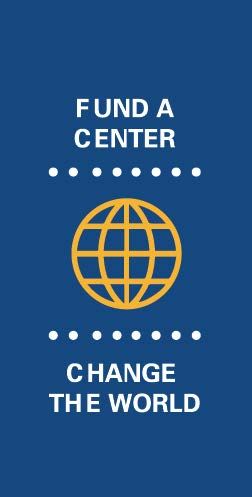
Additional grant funding and donor contributions will secure our efforts to build an internationally recognized program that trains the next generation of scholars to responsibly take up the important social and scientific problems of our time. Higher levels of grant writing support will help us to develop our research infrastructure and our ability to obtain large-scale grants. Our ambitious fundraising goals and sustained efforts to pursue grant and foundation funding will continue the growth and vitality of our work and community.
As we look to the future, we seek to continue to build SJRC as a hub for extramural funding of research projects with links to science and justice.
Reflecting on Our Progress and Looking Ahead
The 2020-2021 academic year marked the end of our ninth year as a research center. The SJRC has become a dynamic and collaborative infrastructure for training the next generation of humanities, natural and social science researchers and engineers who are trained to pursue their research and make discoveries in ecosystems where ethics and justice are primary concerns. The Center and its affiliated faculty remained key partners in creating innovative training, curriculum, and research across campus that recognizes the questions of ethics and justice at stake as we forge knowledge and innovations. In particular, we continued to deepen our collaborations with our colleagues in Science and Engineering, particularly through the C.O.A.S.T. project and future HBCU Summer Undergraduate programs; and our colleagues in Critical Race and Ethnic Studies to develop an undergraduate minor in Science and Justice.
Reflecting on our progress and growth, we continue to refine Center practices, and document them in the SJRC Handbook. Center Manager, Colleen Stone continued to meet with Director Jenny Reardon and Sociology Department Manager Jessica Lawrence to better understand and delineate responsibilities of administrative tasks related to running the Center. Reardon and Stone also continued to envision specific ways in which SJRC can provide effective support to the educational and research efforts of our diverse faculty community.
We are committed to developing future research collaborations, and seek collaborators from all divisions at UCSC and in the UC system, as well as in the community. We will continue to provide a critical and dynamic space that supports the diverse needs of our faculty, researchers, students, and staff.
As we look forward to the year ahead, we look forward to working with our new colleagues Karen Miga (Biomolecular Engineering), Tamara Pico (Earth and Planetary Sciences) and Kathleen Gutierrez (History), and to developing out work with our colleagues Michael Stone (Biochemistry) and Jeremy Sanford (MCD Biology) as we seek to develop just forms of RNA Therapeutics, and with the Institute for the Biology of Stem Cells PI’s Camilla Forsberg (Biomolecular Engineering) and Lindsay Hinck (MCD Biology) as we help forge stem cell research training that addresses questions of ethics and justice. If awarded funds from the California Institute for Regenerative Medicine (CIRM), we will embark on a 5-year training program for graduate students and postdoctoral fellows in the biological sciences, social sciences and humanities and will work towards making a Distinguished Emphasis in Stem Cell Research an option for Social Science PhD students and PBSE students.
SJRC’s promise is simple and bold. The benefits are manifold: improved outcomes not just for humans, but for the many non-human lives as well; approaches to science and technology that balance prosperity and justice, health, ecological survival and ethics. Our affiliated researchers and interdisciplinary teams have built decades of scholastic expertise examining the life sciences and biomedicine, health, environment, food, and racial and economic justice. The Center provides the critical milieu in which the creative sharing of this expertise leads to novel justice praxis and knowledge sharing that fosters and supports diverse lives and futures.
Thank you for making a more just world possible!
In Memoriam: Maya K. Peterson
We also want to take a moment to recognize the sudden passing and profound loss of Science & Justice affiliated faculty, Maya K. Peterson, associate professor of history. Our thoughts and condolences remain with Maya’s family.
Peterson’s research engaged questions of health, the environment, and the transnational histories of science and technology in the modern era. Her first monograph, Pipe Dreams: Water and Empire in Central Asia (Cambridge UP, 2019), was a finalist for the Central Eurasian Studies Society’s Award for Best Book in History and the Humanities. Professor Peterson held a B.A. in History with High Honors, Phi Beta Kappa, from Swarthmore College, and an M.A. in Russia, Eastern Europe, and Central Asia Studies and a Ph.D. in History from Harvard University, where she was also a postdoctoral fellow and lecturer in the History of Science Department.
Appendix 1: Visiting Scholars
Melissa Eitzel Solera | National Science Foundation Postdoctoral Science, Engineering and Education for Sustainability Fellow, Sociology (through December 2021)
In 2021-2022, the following remote scholars will join us.
Kim Hendrickx | Research Associate, Spiral, University of Liège (Belgium). Kim was also a 2017-2018 visiting scholar. Refer to Kim’s September 2021 article in Frontiers in Pharmacology on Orphan Drugs, Compounded Medication and Pharmaceutical Commons.
Rebecca Herzig | Professor of Gender and Sexuality Studies, Bates College.
Appendix 2: Science & Justice Working Group (SJWG) Events, Experimental Mixers, and Reading Groups
Our 2020-2021 events are linked below for more information, rapporteur reports and recordings.
Fall Science & Justice Writing Together
October 14, 2020 | Meet & Greet
October 28, 2020 | Works-in-Progress with Guthman, Fairbairn, Reisman
Winter Science & Justice Writing Together
Feb 24, 2021 | Works-in-Progress with Tamara Pico
March 9, 2021 | V is For Veracity: a University Forum
April 7, 2021 | Book launch! Sweetness in the Blood: Race, Risk, and Type 2 Diabetes
Spring Science & Justice Writing Together
May 4, 2021 | Book launch! Counterpoints: A San Francisco Bay Area Atlas of Displacement & Resistance
May 12, 2021 | Works-in-Progress with Kathleen Cruz Gutierrez
May 26, 2021 | Book Launch! Bad Dog: Pit Bull Politics and Multispecies Justice
Appendix 3: Research Clusters & Projects
The Pandemicene
The Science & Justice project The Pandemicene produced the following podcast episodes that addressed overlapping topics of institutions of care, genomics, health and society.
Episode 2: Kathia Damian with Joan Donovan on State-sponsored Misinformation
Episode 3: Maryam Nazir with Misha Angrist on Thinking Beyond Bioethics
Episode 4: Gina Barba with Sharon Daniel on Public Art and Carcerality
Episode 5: Maryam Nazir with Rebecca DuBois on a COVID-19 Vaccine.
Episode 6: Gina Barba with Erin McElroy on Housing Justice and Big Tech
Episode 7: Tee Wicks with Owain Williams on the Political Economy of Global Health
Episode 8: Paloma Medina with Martha Kenney on Building Community Resilience
Episode 9: Isa Ansari with Ruth Müller on Collaborative Thinking
Episode 10: Pandemicene Team Roundtable
Episode 11: Sandy Chung with Dora Khuu and Kiesha Xiao on Anti-Asian Racism in the U.S.
Episode 12: Sophia Parizadeh on Women of Color’s Experiences During the COVID-19 Pandemic
Episode 13: Isa Ansari and Dennis Browe with Dean Spade on Mutual Aid
Queer Ecologies Research Cluster
Queer Ecologies is a group led by Training Program Fellows Paloma Medina and Dennis Browe. The cluster investigates how sexuality and concepts of nature have been historically linked. In particular, they are interested in how evolutionary and ecological science has informed what is “natural” and how we use this information to delineate certain sexual behaviors as normal or aberrant. Queer Ecologies seeks to examine the historical making of the natural as it relates to sexuality while communicating the overwhelming diversity of sex and gender in biology.
Just Biomedicine
Just Biomedicine is a UC Santa Cruz-based research collective that examines the meeting of biomedicine, biotechnology, and big data along the Third Street corridor in the Mission-Bay neighborhood of San Francisco. Many hope that this convergence will democratize access to health information and produce revolutionary new medical treatments that new companies will make available to the public through market mechanisms. Yet, as in other domains, living with technoscientific transformations over time reveals how they produce new inequalities and injustices: new challenges to democratic governance; new surveillance regimes; and new forms of social stratification.
The team began presenting their findings at other academic institutions and professional academic associations. In May 2021, led by Sociology graduate student and Science & Justice GSR Dennis Browe, the team presented its work at the Precision Medicine and Society Conference at Columbia University.
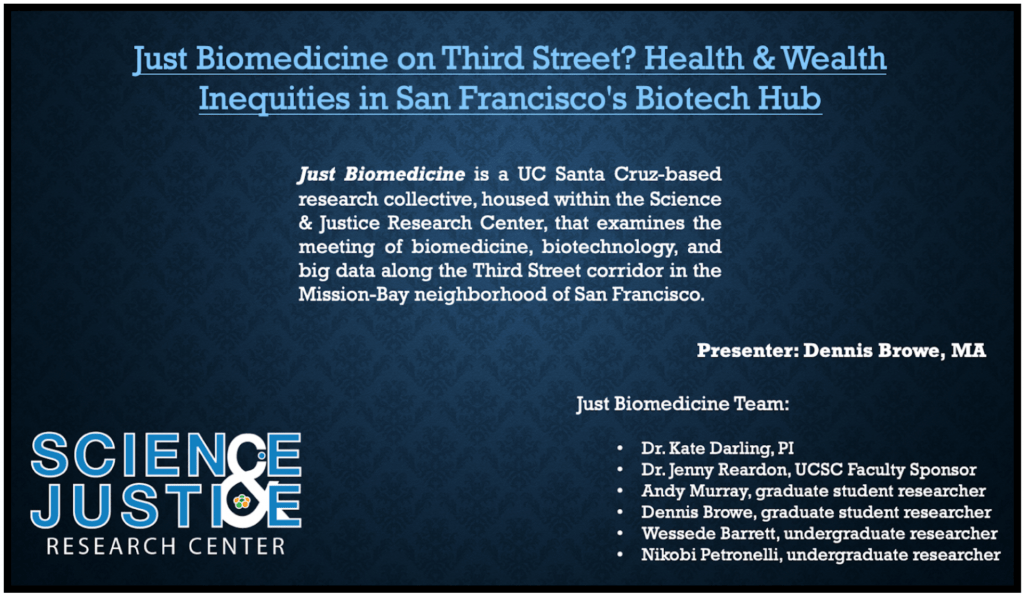 Also in May SJRC affiliate Katherine Weatherford Darling (University of Maine), who co-led the SJRC contribution presented at the previously mentioned launch of Counterpoints: A San Francisco Bay Area Atlas of Displacement & Resistance (PM Press, 2021). A recording can be found on YouTube. In August 2021, graduate student researcher Dennis Browe (sociology) will present at the American Sociological Association.
Also in May SJRC affiliate Katherine Weatherford Darling (University of Maine), who co-led the SJRC contribution presented at the previously mentioned launch of Counterpoints: A San Francisco Bay Area Atlas of Displacement & Resistance (PM Press, 2021). A recording can be found on YouTube. In August 2021, graduate student researcher Dennis Browe (sociology) will present at the American Sociological Association.
SJRC Director Jenny Reardon continued her service on the advisory board for the Center for ELSI Resources and Analysis (CERA). CERA is a new national center establishing a reliable online platform for scientists, scholars, policymakers, journalists and the general public to learn about the ethical, legal and social implications of genetics and genomics (ELSI) and fostering a community of multi-disciplinary researchers focused on ELSI research. CERA is funded by the National Human Genome Research Institute (NHGRI) at the National Institutes of Health (NIH) and co-led by the Stanford Center for Biomedical Ethics and the Division of Ethics at Columbia University in partnership with The Hastings Center and the Personal Genetics Education Project at Harvard University by Co-Principal Investigators Mildred Cho (Associate Director Stanford Center for Biomedical Ethics) and Sandra Soo-Jin Lee (Chief, Division of Ethics Department of Medical Humanities and Ethics at Columbia University).
Socio-Ecological Justice
Visiting Scholar Melissa Eitzel Solera continued working with SJRC Founding Director Jenny Reardon and Ken Wilson (The Muonde Trust) and colleagues to wrap up publications for the NSF-funded project, “Understanding Resilience in a Complex Coupled Human-Natural System: Integrating Qualitative and Quantitative Information and Community-Based Action Research.” Dr. Eitzel Solera led the NSF-funded project involving a 35-year collaborative research project in rural Zimbabwe run by The Muonde Trust. Together with the community research team, they developed methods of modeling the resilience of their system and synthesizing their long-term data to answer pressing concerns about sustainable environmental management. They also made theoretical and practical contributions to more just modeling practices in an age of “big data.”
Dr. Eitzel Solera worked closely with SJRC scholars, including award-winning journalist Sally Lehrman, Andrew Mathews (anthropology), Katherine Weatherford Darling (University of Maine), and Jenny Reardon, for advice and feedback on theoretical framings for a manifesto, approaches to collaborative writing, and background on qualitative methods. With the support of the Center’s staff and affiliated scholars, the project was able to raise questions about more just and collaborative modeling from both theoretical and practical angles, contribute to a group of rural Zimbabwean researchers’ ability to define and address their own land management challenges with the tools of digital mapping and modeling, and apply these experiences to community-based citizen science in California. Their efforts were written up in the first article in a series planned and published by The Research Ideas and Outcomes (RIO) journal as “A modeler’s manifesto: Synthesizing modeling best practices with social science frameworks to support critical approaches to data science (describing the modeling process). Eitzel Solera plans for a second paper about applying the manifesto to cases of modeling work, testing it to see if it actually results in ‘better’ modeling; and a third paper about how the process of making the manifesto worked pedagogically and in practice. In Fall 2021, Eitzel Solera will join UC Davis’ Center for Community and Citizen Science.
Appendix 4: SJRC Publications
Bad Dog: Pit Bull Politics and Multispecies Justice (University of Washington Press, 2021)
Bad Dog: Pit Bull Politics and Multispecies Justice (University of Washington Press, 2021) by UCSC alum Harlan Weaver (assistant professor of gender, women, and sexuality studies at Kansas State University), examines pit bulls and animal shelter politics through the lens of what Weaver terms “interspecies intersectionality” in order to identify how relationships between humans and non-human animals shape and are shaped by experiences of gender, race, colonialism, nation, and sexuality. Traversing themes ranging from contemporary claims to “rescue,” the history of the human, the ontological emergences / becomings of human / pit bull relationships, and the queer possibilities for challenging normative kinship inherent in pit bull politics, Bad Dog provides a compelling interdisciplinary argument for a justice that engages the needs, desires, and imaginings of marginalized humans and non-human animals together.
Counterpoints: A San Francisco Bay Area Atlas of Displacement & Resistance (PM Press, 2021)
Counterpoints: A San Francisco Bay Area Atlas of Displacement and Resistance (PM Press, 2021) brought together cartography, essays, illustrations, poetry, and more in order to depict gentrification and resistance struggles from across the San Francisco Bay Area and act as a roadmap to counter-hegemonic knowledge making and activism. Compiled by the Anti-Eviction Mapping Project (co-founded by UCSC Feminist Studies graduate Erin McElroy), each chapter reflects different frameworks for understanding the Bay Area’s ongoing urban upheaval, including: evictions and root shock, indigenous geographies, health and environmental racism, state violence, transportation and infrastructure, migration and relocation, and speculative futures.
The atlas featured original research from multiple campus contributors including SJRC’s Just Biomedicine research cluster and the No Place Like Home initiative.
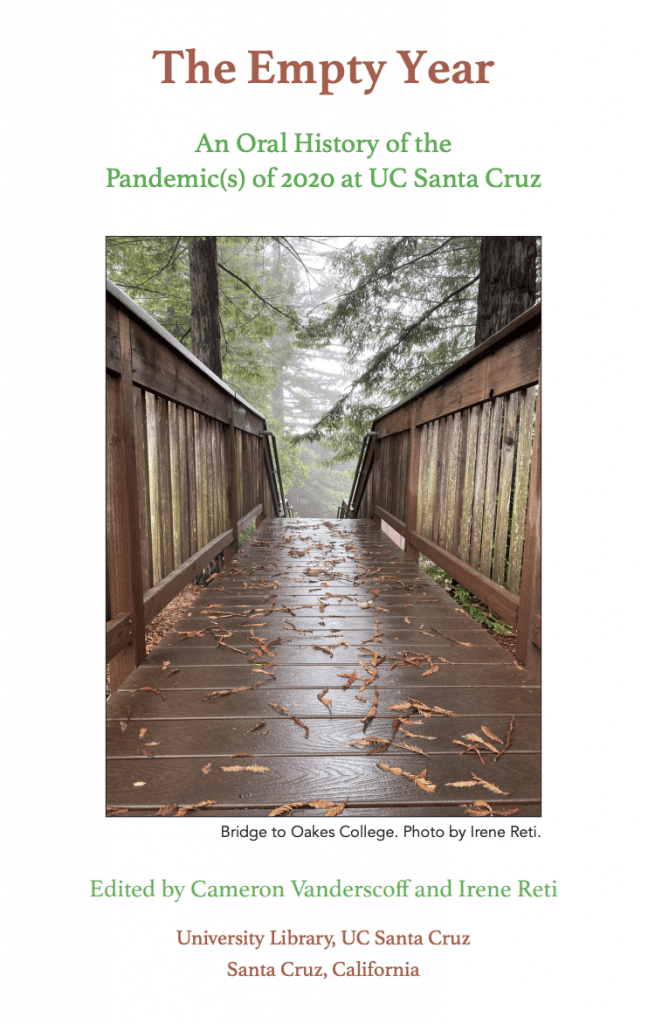
The Empty Year: An Oral History of the Pandemic(s) of 2020 at UC Santa Cruz (UC Santa Cruz Library, 2020)
The Empty Year: An Oral History of the Pandemic(s) of 2020 at UC Santa Cruz (UC Santa Cruz Library)
Bearing witness to COVID at UC Santa Cruz, Science & Justice graduate researchers Dennis Browe (Sociology) and undergraduate researchers Kathia Damian (Literature), Maryam Nazir (Philosophy) and Aitanna Parker (Technology and Information Management and Critical Race and Ethnic Studies) contributed to The Empty Year: An Oral History of the Pandemic(s) of 2020 at UC Santa Cruz, an immersive project showing how community members coped in the time of COVID-19. The Empty Year collects the oral histories of UC Santa Cruz undergraduate and graduate students last year under the guidance of the University Library’s Regional History Project. These stories of resilience and loss are preserved in a 540-page published book with full-color images as well as an online electronic version with SJRC students mentioned on page 8.
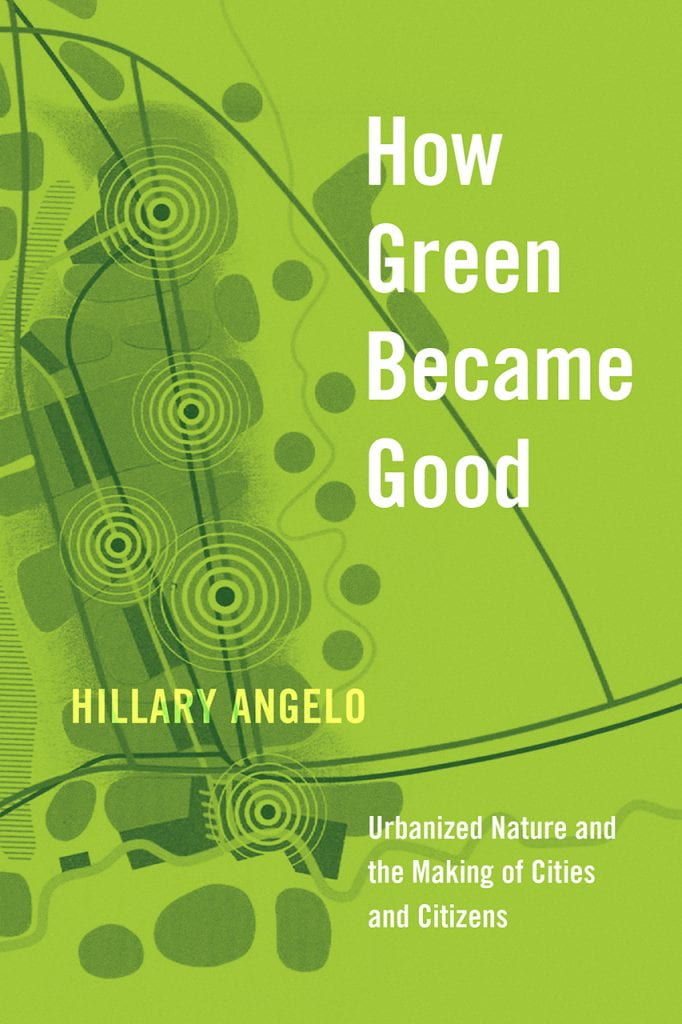
How Green Became Good: Urbanized Nature and the Making of Cities and Citizens (University of Chicago Press, forthcoming 2021)
How Green Became Good: Urbanized Nature and the Making of Cities and Citizens (University of Chicago Press, 2021)
Formerly neglected urban spaces and new high-end developments draw huge crowds thanks to the considerable efforts of city governments. But why are greening projects so widely taken up, and what good do they do? In How Green Became Good: Urbanized Nature and the Making of Cities and Citizens (University of Chicago Press, 2021) by affiliated faculty and Assistant Professor of Sociology Hillary Angelo, uncovers the origins and meanings of the enduring appeal of urban green space, showing that city planners have long thought that creating green spaces would lead to social improvement.
Turning to Germany’s Ruhr Valley (a region that, despite its ample open space, was “greened” with the addition of official parks and gardens), Angelo shows that greening is as much a social process as a physical one. She examines three moments in the Ruhr Valley’s urban history that inspired the creation of new green spaces: industrialization in the late nineteenth century, postwar democratic ideals of the 1960s, and industrial decline and economic renewal in the early 1990s. Across these distinct historical moments, Angelo shows that the impulse to bring nature into urban life has persistently arisen as a response to a host of social changes, and reveals an enduring conviction that green space will transform us into ideal inhabitants of ideal cities. Ultimately, however, she finds that the creation of urban green space is more about how we imagine social life than about the good it imparts.
Sweetness in the Blood: Race, Risk, and Type 2 Diabetes (University of Minnesota Press, 2021)
Sweetness in the Blood: Race, Risk, and Type 2 Diabetes (University of Minnesota Press, 2021) by affiliated faculty and Assistant Professor of Sociology James Doucet-Battle, challenges the notion that the best approach to understanding, managing, and curing Type 2 diabetes is through the lens of race. It also transforms how we think about sugar, filling a neglected gap between the sugar- and molasses-sweetened past of the enslaved African laborer and the high-fructose corn syrup- and corporate-fed body of the contemporary consumer-laborer.
Learn more in this campus news article, “Uncovering the social factors lurking within diabetes risk.”
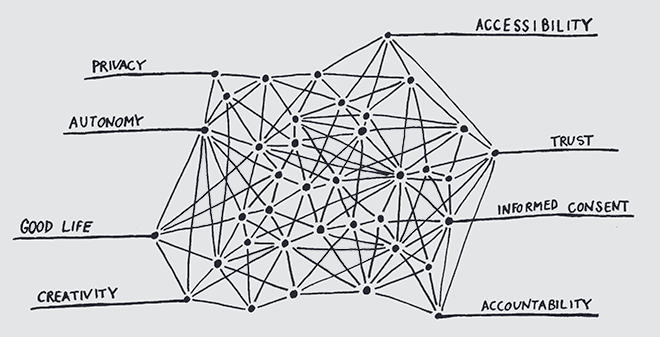 World Records Journal Vol. 4 | In The Presence of Others (2020)
World Records Journal Vol. 4 | In The Presence of Others (2020)
Using Hannah Arendt’s writings to rethink the role of documentary in visualizing and producing common worlds, SJRC Founding Director Jenny Reardon with affiliated Film and Digital Media faculty and media theorist, software designer, and artist Warren Sack and Professor of Modern Culture and Media (MCM) and Political Science at Brown University Bonnie Honig published and article in The World Records Journal that launched Vol. 4 In The Presence of Others puting Arendt’s work into counterpoint with documentary media and cultures.
This issue of World Records Included is Conditions: Warren Sack in conversation with Jenny Reardon and Bonnie Honig, a trialogue to discuss questions:
- What are the prevailing trends in science, biotech, and software engineering?
- What kinds of trajectories are implied by computational theory and machine learning? What are the risks of these developing fields as they come into contact with modes of privatized, bureaucratic rationality, or with statism and surveillance?
Appendix 5: SJRC Funders
Grants
SEES Fellows: Understanding Resilience in a Complex Coupled Human-Natural System: Integrating Qualitative and Quantitative Information and Community-Based Action Research
Funding Agency: National Science Foundation
Principal Investigator: Jenny Reardon (for SJRC Postdoc Melissa Eitzel Solera)
NSF Award No: 1415130; 2014-12/31/2020
Amount: $520,412
The UCSC Center for Orphan-disease Alternative Splicing Therapeutics (C.O.A.S.T.)
Funding Agency: UC Santa Cruz center-scale seed funding initiative
Principal Investigator: Michael Stone
Amount: $75,000 (Office of Research $60,000) and (Physical and Biological Sciences Dean Koch $15,000)
Toward a Sociology of Bioethics (applied; Finalist)
Funding Agency: Wellcome Trust Research Development Award in Humanities, Social Science and Bioethics
Principal Investigator: Jenny Reardon (Primary Sponsor: Institute for Advanced Study, Alondra Nelson)
Amount: $487,098 (UCSC’s portion)
Syndemics and Structural Racism: COVID-19, Type 2 Diabetes, and Climate Change (applied)
Funding Agency: Robert Wood Johnson Foundation
Principal Investigator: James Doucet-Battle; Co-PI: Nancy Chen
Amount: $293,000
EDUC 4: CIRM Research Training Grant “CIRM Scholar” Awards (applied)
Funding Agency: California Institute for Regenerative Medicine (CIRM)
Principal Investigator: Institute for the Biology of Stem Cells: Camilla Forsberg, Co-PI: Lindsay Hinck
Amount: $4,913,271 ($2,500 SJRC portion)
CRRSAA: Coronavirus Response and Relief Supplemental Appropriations Act 2021 (a.k.a. CRRSAA or HEERF II), a supplement to CARES Act funds.
Funding Agency: Federal
Amount: $12,113
Major Donors
Robb Mass with GS Gives
Major Sponsors
Department of Sociology
Division of Graduate Studies
Division of Humanities
Division of Physical & Biological Sciences
Division of Social Sciences
The UC Santa Cruz Genomics Institute
SJWG Event Co-Sponsors
Department of Feminist Studies
Department of Sociology
The Humanities Institute
The UC Santa Cruz Genomics Institute
The UC Santa Cruz Institute for Social Transformation
The UC Santa Cruz University Relations Special Events Office
Major SJRC Co-Sponsored Events
V is For Veracity: a University Forum
Book launch! Sweetness in the Blood: Race, Risk, and Type 2 Diabetes (U. Minn Press, 2021)
Appendix 6: SJRC 2020-2021 Org Chart
SJRC Org Chart 2020-2021 (PDF)
Appendix 7: SJRC Faculty Affiliates at UC Santa Cruz
The Science & Justice Research Center (SJRC) partners with multiple regional and international units to provide a discipline-neutral space to freely express and address areas of common concern through facilitated discussions, student exchanges, research, and training. Find out more about how affiliates support the Center.
UCSC Affiliated Faculty
SJRC Affiliated Faculty add to the liveliness of the S&J Community.
Elliot Anderson, Art
Hillary Angelo, Sociology
Neda Atanasoski, Feminist Studies
Karen Barad, Feminist Studies, History of Consciousness, and Philosophy
Chris Benner, Environmental Studies, Sociology
Micha Cárdenas, Art and Design: Games and Playable Media
Nancy Chen, Anthropology
Sharon Daniel, Film & Digital Media
Jennifer Derr, History
Lindsey Dillon, Sociology
James Doucet-Battle, Sociology
Madeleine Fairbairn, Environmental Studies
Lise Getoor, Computer Science
Herman Gray, Sociology
Julie Guthman, Community Studies
Kathleen (Kat) Gutierrez, History
Camilla Hawthorne, Sociology
Dee Hibbert-Jones, Digital Art and New Media
Zia Isola, Center for Biomolecular Science & Engineering
Andrew Mathews, Anthropology
Jaimie Morse, Sociology
Maya Peterson, History
Tamara Pico, Earth and Planetary Sciences
Jenny Reardon, Sociology
Warren Sack, Digital Arts and New Media
Beth Shapiro, Ecology and Evolutionary Biology
Matt Sparke, Politics
Beth Stephens, Art, E.A.R.T.H. Lab
Susan Strome, Molecular Cell & Developmental Biology
Anna Tsing, Anthropology
Anjuli Verma, Politics
UCSC Steering Committee
Members of the SJRC Steering Committee serve for 1 academic year (renewable). The committee advises the Center on its research, community involvement, programing, and building the Science and Justice platform. It also reviews committee members and assignments, the Center’s research themes, events, visiting scholars, and steers the Center’s overall programing. The committee meets twice per term.
Jennifer Derr, History
James Doucet-Battle, Sociology
Lise Getoor, Computer Science
Jenny Reardon, Sociology
Jaimie Morse, Sociology
Matt Sparke, Politics
Internal Advisory Board
Members of the SJRC Advisory Board serve for 3 academic years (renewable).Board members advise the Center on institutional support and fundraising, cultivate connections and synergy amongst partners, and help forge the overall Center vision and plans. The Board meets annually in Spring.
Elliot Anderson, Art
Karen Barad, Professor of Feminist Studies
Nancy Chen, Anthropology
Herman Gray, Sociology
Ed Green, Biomolecular Engineering
Zia Isola, Center for Biomolecular Science & Engineering
Jaimie Morse, Sociology
Warren Sack, Digital Arts & New Media
Matt Sparke, Politics
Anna Tsing, Anthropology
External Advisory Board
Geoffrey Bowker, Bioinformatics, University of California – Irvine
Joe Dumit, Anthropology, University of California – Davis
Sally Lehrman, SJRC Visitor
Laura Mamo, Health Equity Institute, San Francisco State University
Safiya Umoja Noble, Information Studies, University of California – Los Angeles
Janet Shim, School of Nursing, University of California – San Francisco
Kim TallBear, Native Studies, University of Alberta, Canada
Fred Turner, Communications, Stanford
Appendix 8: SJRC Key Accomplishments
Key Accomplishments (eg: external and internal funding, grants, press coverage, research collaborations) can be found here.

